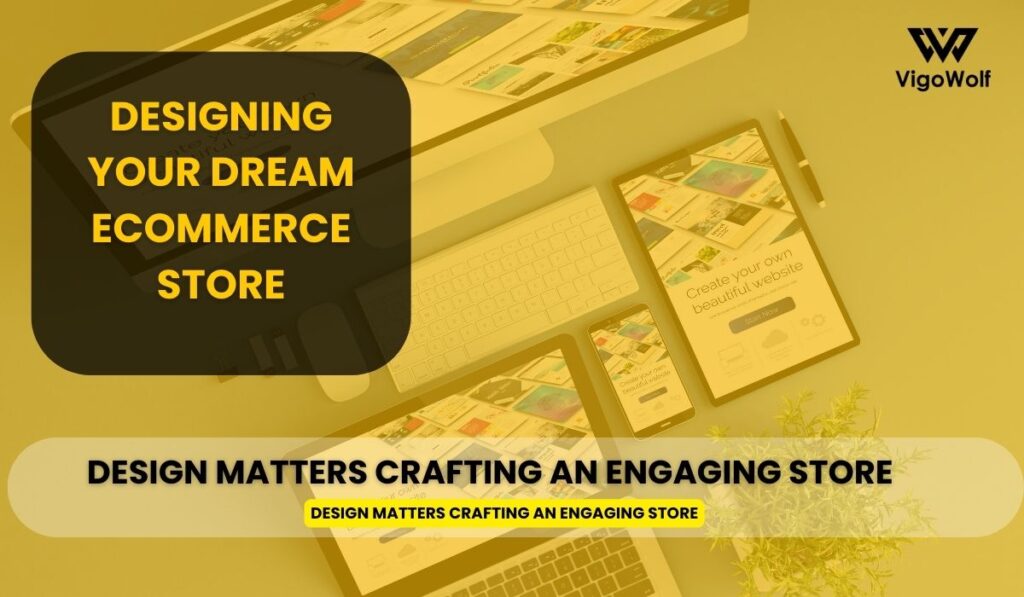Introduction
In the world of eCommerce, first impressions matter—a lot. The visual appeal and user-friendliness of your online store can be the difference between a one-time visitor and a loyal customer. In this blog post, we’ll take you on a journey into the realm of eCommerce website design. We’ll explore the significance of a well-designed eCommerce website, delve into the plethora of themes and templates available for WooCommerce, and provide valuable tips on creating a visually inviting and user-friendly online shopping experience. Let’s turn your eCommerce dream into a beautifully designed reality.
The Importance of a Well-Designed eCommerce Website
Why is a well-designed eCommerce website crucial for your business? Here’s why:
- First Impressions: Your website is often the first point of contact with potential customers. A well-designed site creates a positive and lasting impression.
- User Experience: An intuitive and user-friendly website makes it easy for visitors to browse, shop, and complete transactions, reducing bounce rates and cart abandonment.
- Trust and Credibility: A professional and visually appealing website instills trust in customers. It signals that you’re a legitimate and trustworthy business.
- Branding: Your website’s design should align with your brand identity. Consistency in design reinforces brand recognition.
- SEO Benefits: Search engines favor user-friendly websites with fast loading times and mobile responsiveness.
Exploring Various Themes and Templates for WooCommerce
WooCommerce, a popular eCommerce platform for WordPress, offers a wide range of themes and templates to choose from. These themes provide the foundation for your website’s design. Here are a few options:
- Free Themes: WooCommerce offers several free themes suitable for small businesses and startups. They provide essential eCommerce functionality and can be customized to some extent.
- Premium Themes: Premium WooCommerce themes come with advanced features, customization options, and dedicated support. They offer a more polished and professional appearance.
- Custom Themes: For a unique and tailored design, consider working with a web developer to create a custom WooCommerce theme that aligns precisely with your brand.
- Multipurpose Themes: Some WordPress multipurpose themes are compatible with WooCommerce, offering flexibility and a wide range of design options.
- Child Themes: Child themes allow you to modify and customize existing themes while preserving their core functionality. This is a great option if you have specific design requirements.
Selecting a Design That Aligns with Your Brand
Choosing the right design for your eCommerce website is a crucial decision. Here are some tips to ensure your design aligns with your brand:
- Consistency: Maintain consistent branding elements, such as colors, fonts, and logos, throughout your website.
- User-Centric Design: Prioritize user experience. Ensure that your design makes it easy for customers to find products, navigate your site, and complete purchases.
- Mobile Responsiveness: With a growing number of users shopping on mobile devices, it’s essential to choose a design that is mobile-responsive and provides an excellent mobile browsing experience.
- Loading Speed: Opt for a design that is optimized for fast loading times. Slow websites can deter customers.
- Testing: Test your design across different devices and browsers to ensure compatibility and a consistent appearance.
- Scalability: Choose a design that can grow with your business. It should accommodate your future needs and expansion.
Creating a User-Friendly Shopping Environment
The design of your eCommerce store should prioritize user-friendliness. Here are some best practices:
- Clear Navigation: Implement a clear and intuitive menu structure that helps customers find what they’re looking for.
- Search Functionality: Include a robust search feature that allows users to quickly locate products.
- Product Presentation: Use high-quality images, detailed product descriptions, and customer reviews to showcase your products effectively.
- Checkout Optimization: Simplify the checkout process to reduce cart abandonment. Offer multiple payment options and guest checkout.
- Security: Display trust badges and ensure secure payment processing to instill confidence in customers.
- Contact Information: Make it easy for customers to contact you for support or inquiries.
Conclusion
The design of your eCommerce website is a critical factor in your online store’s success. A well-designed site not only enhances your brand’s image but also provides an enjoyable shopping experience for your customers. Whether you choose a free or premium theme, prioritize user-friendliness, consistency with your brand, and mobile responsiveness. With the right design, you can turn your eCommerce dream into a visually inviting and user-friendly reality.

